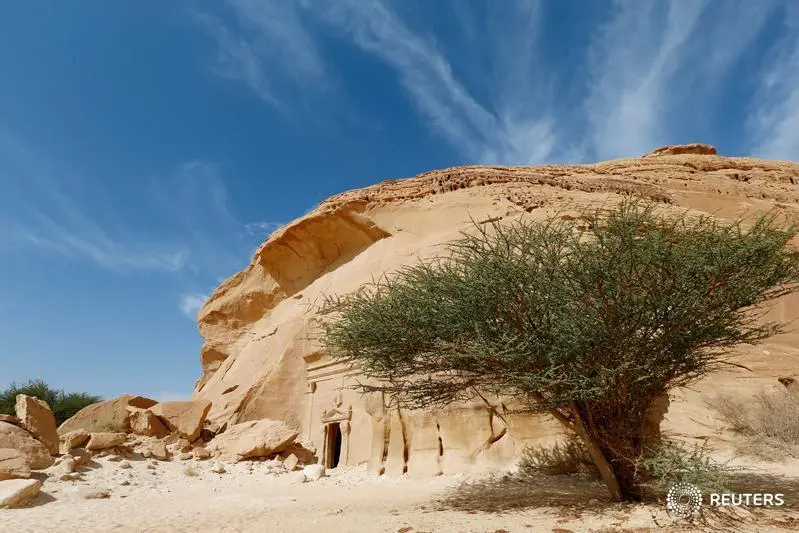PHOTO
In January, Crown Prince Mohammed bin Salman invited the leaders of the five other Gulf Cooperation Council member states to a meeting in AlUla, where he put forward his collective reconciliation project. The AlUla Declaration was signed in the presence of representatives from Egypt, the US, the Arab League and the Organization of Islamic Cooperation.
At the time, even the most optimistic people only said something along the lines of: “Let us monitor the situation. We have six months to put the agreement to the test if possible. The differences are multiple and intertwined, individual and collective, and reconciliation projects cannot happen without difficult concessions.”
Now, almost a year since the AlUla Declaration was signed, we can now say that it has held its ground. The reconciliation projects have slowly moved forward and most of the contentious issues, from legal to political, have been agreed upon or dealt with. It must also be said that all governments have made concessions. The Gulf reconciliation projects were accompanied by surprising and exciting agreements, most notably between Egypt and Turkey, which took place after several detailed meetings.
The crown prince on Monday began his tour of the five other GCC capitals when he landed in Muscat. His journey will develop what he started in AlUla in January. His visit was preceded by news of further breakthroughs as a result of the reconciliation agreement: Turkey expressed its desire to expand the circle of reconciliation project with Saudi Arabia under the auspices of the emir of Qatar; the visit of Abu Dhabi Crown Prince Sheikh Mohammed bin Zayed Al-Nahyan to Ankara two weeks ago; this week’s visit of the UAE national security adviser to Tehran, where he met with the Iranian president; and the Saudi-Iranian meetings that took place over recent months in the Iraqi capital, Baghdad.
So, the year is concluding with the announcement of the success of the AlUla Declaration, which has turned the page on all areas of disagreement in the Gulf, with its positive effects echoing across all regional issues, easing most tensions.
In reality, the increase in the level and number of tensions in the region did not originate from a vacuum, but rather was an indirect result of the 2011 revolutions, which caused simultaneous collapses in regional states and created voids and crises far exceeding the management capacities of these countries. These then turned into failures and wars in Libya, Syria and Yemen. The crises continue to threaten the stability of Iraq, Sudan, Tunisia and Lebanon.
Let us remember that everyone has been through 10 difficult years, during which every country was looking for alliances to secure its borders in a bid to stop the chaos from spreading, while rescuing the countries that were in the midst of a crisis or on the edge of the abyss. Disagreements, both in the Gulf and in broader regional circles, were born out of these collective tensions.
The Gulf’s efforts this year have put an end to the differences, with the reconciliation project built on many details and concessions from all parties and with its results extending to include Egypt and Turkey. One cannot say it included Iran as well, because the differences with Tehran are more complex and intricate, covering regional issues such as Yemen, Iraq, Syria and Lebanon. Reducing tensions with Iran, if not necessarily reconciling with it, remains a useful way to achieve collective regional pacification.
More importantly, these multiple reconciliation projects have been tested on the ground and, 11 months after the signing of the AlUla Declaration, they promise success. Better days await the whole region, with the reconciliation efforts going beyond Saudi Arabia, the UAE, Qatar and Bahrain.
Multiple reconciliation projects will build an expansive protective screen, preventing the spread of dangerous tensions from the fringes of our region to its center. The hostilities on the extremities between Iran and Azerbaijan, and prior to that Azerbaijan and Armenia, as well as Turkey and Greece and recently the civil war in Ethiopia, are all separate disputes that may feed on the axis of Arab discord and threaten us.
- Abdulrahman Al-Rashed is a Saudi journalist and intellectual. He is the former general manager of Al-Arabiya news channel and former editor-in-chief of Asharq Al-Awsat.
Copyright: Arab News © 2021 All rights reserved. Provided by SyndiGate Media Inc. (Syndigate.info).





















